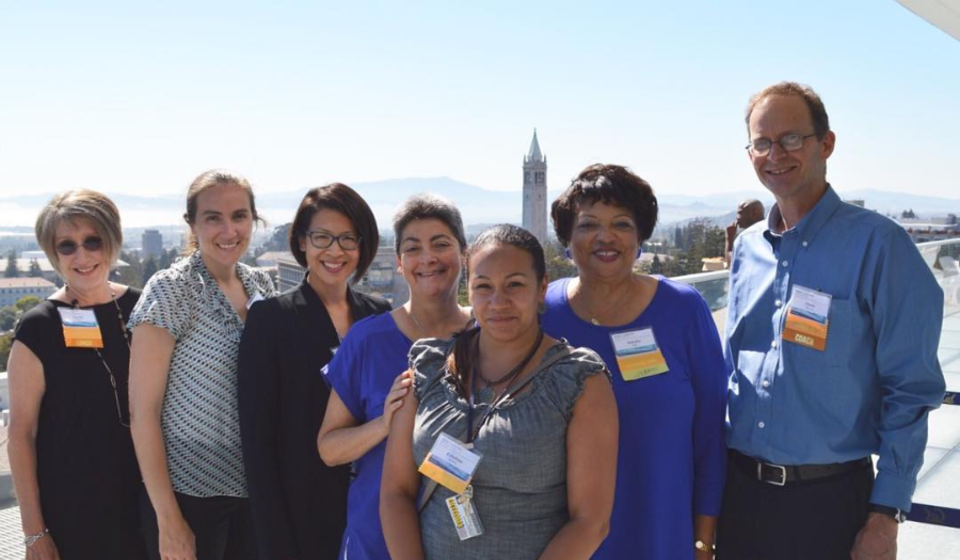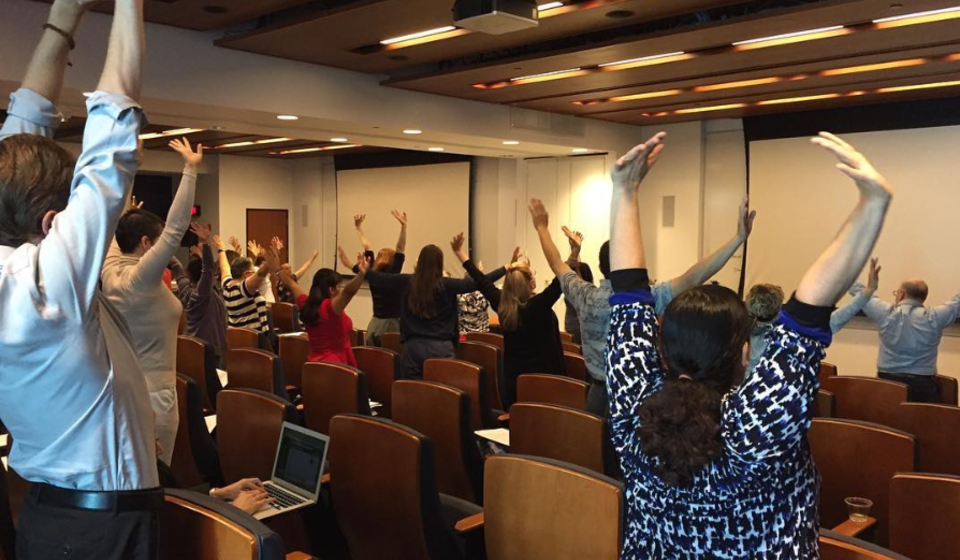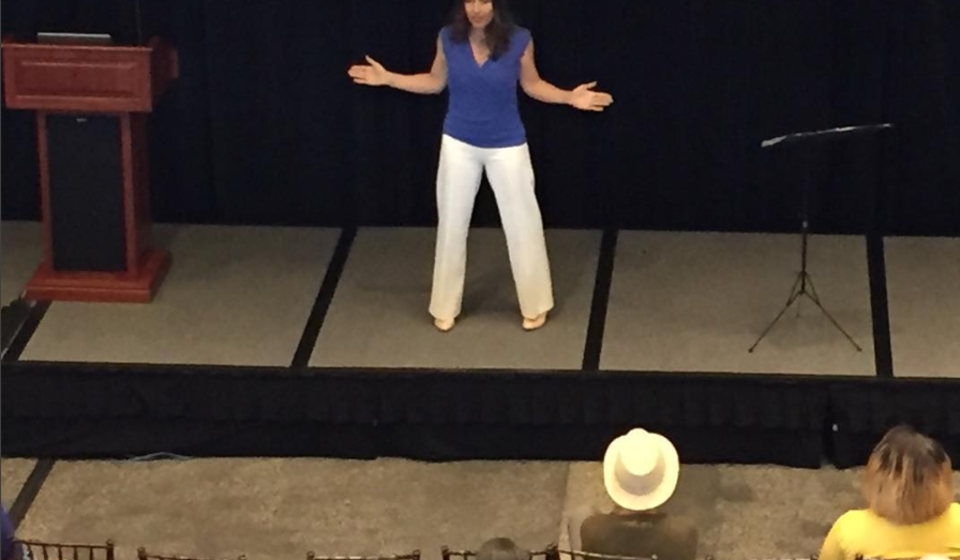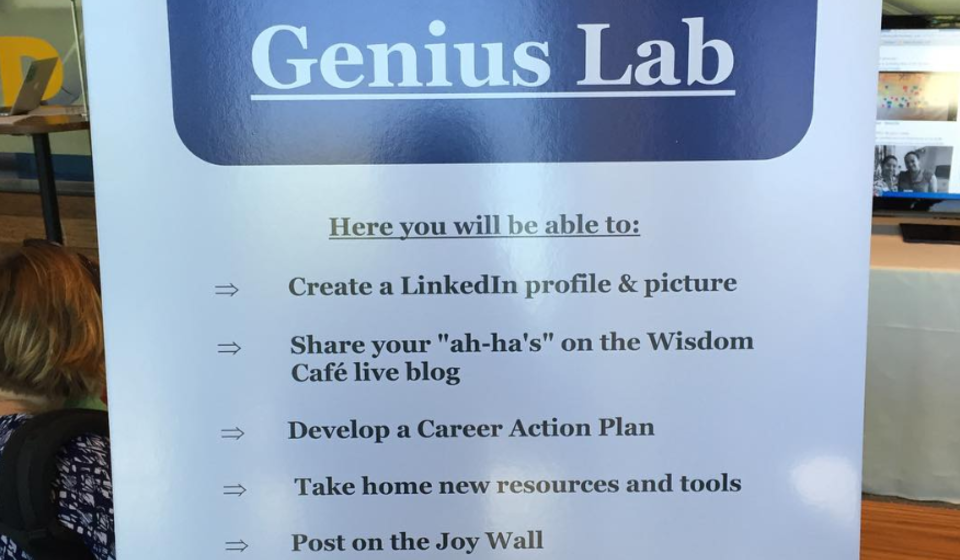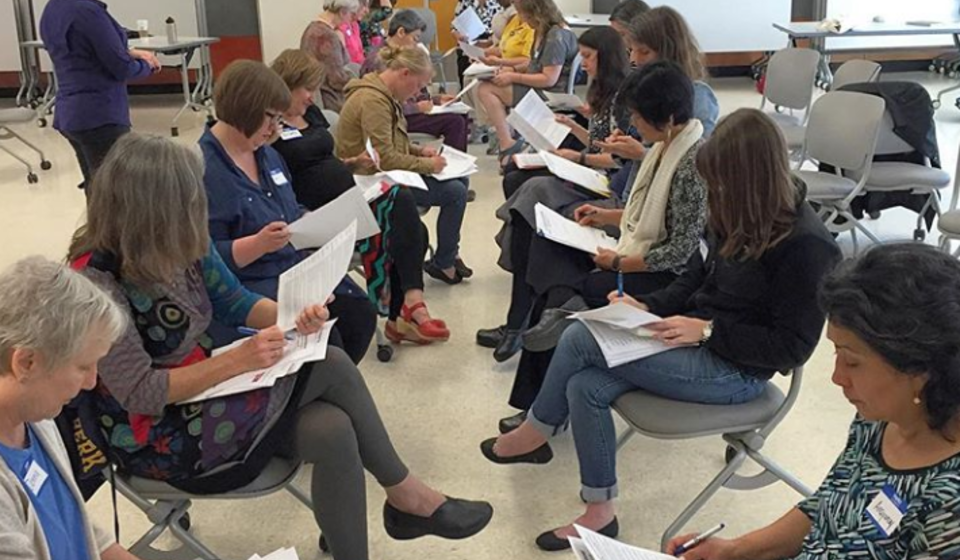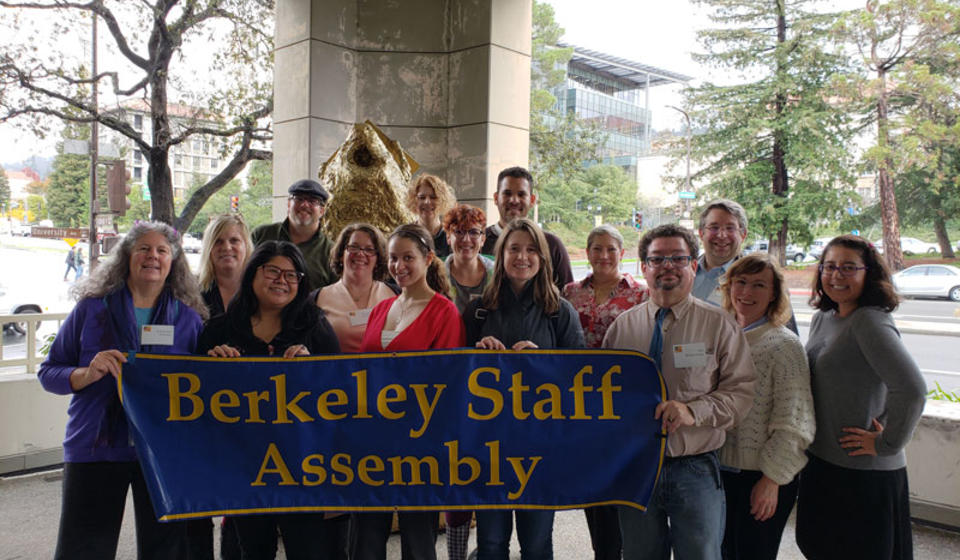What roles have you had throughout your time at Berkeley and how did you know when it was time to move to a new position?
I've worked at UC Berkeley for 12 years. My professional experience at UC Berkeley began in the Chicanx/Latinx Academic Student Development Office, then continued in the Transfer, Re-entry, and Student Parent Center. Afterwards, I continued my work in the Office of Undergraduate Admissions as Admissions Advisor, Diversity Coordinator, and Transfer Specialist. In the hopes of continuing to have a positive impact on the student experience, I then moved to my current position at the College of Environmental Design (CED) as their Academic Advisor and Diversity Officer.
Each transition was a little different. One transition was due to the fact that the department was not able to offer me a long term position as a result of budget cuts during the recession. As a result the decision was clear that I needed to find something that was longer term. For the other times, the decisions were more challenging because I enjoyed each position I had in my time at Berkeley. Deciding when it was time to move to a new position depended on the degree to which both the position and I were growing. I asked myself, “How much am I able to contribute to those I serve in my current position?” and “How much am I growing in this position?” If I am able to effectively serve the community and continuously grow as a person, then I feel my work is not done. Once that balance is off, then it is time to consider how I can re-establish the balance or where can my interests and talents best serve students.
What factors do you think helped you switch positions successfully within Berkeley?
I think in order to understand the factors that helped me be successful in my position as well as in switching positions I have to provide some contextual information of my experience. Much like starting college as a first generation college student, I began my career as a first generation professional. While I had the talent and potential to excel, I found myself navigating a space that looks and functions differently than the jobs my family had. A particularly jarring aspect of my experience was being on a different side of higher education. With an immense amount of work, higher education became familiar to me, and I began to understand how it functioned. Then, as a first generation professional, that same space remained familiar in a few aspects, and then many aspects became unfamiliar. It was like looking at higher education from the other side of a one way mirror. As a student, the higher education mirror was there to reflect my experience; there were programs and services that helped me along the way. Now on the other side of the mirror, my job was to assist the students, but then there are things like professional development, salary negotiation, selecting health care, selecting retirement plans, and, oh yeah, a large institution with nuanced internal office politics and lingo. There was not (and currently is not) a system of support assisting new first generation professionals. As a result I had to create that system--learning, unlearning, and relearning practices that will help me succeed.
Major factors in my ability to grow and switch successfully were mentors, supervisors and colleagues.
Mentors: The mentors I had before beginning my career made it possible for me to begin and thrive in each position. As a student my mentors provided me with information, explanation, and translation of the labyrinth of bureaucratic processes that I encountered in higher education. As a new professional, they played a similar role, but because the process of career development is not as linear as a process to obtaining a degree, there was a limit to that support, understandably.
Supervisors: A very important consideration in switching positions is my direct supervisor. I have to feel that I am able to be authentic with them and that they trust the work that I do through my role. One thing I communicate before accepting a position is my need for continuous growth. I specify what growth would look like. Growth is not always the next level position. I have been fortunate to find supportive supervisors in my time at UC Berkeley. I have learned a lot from each of them. They have encouraged my curiosity and created a welcoming space to grow.
Colleagues: Overall, my journey in higher education as a student, practitioner, and leader has been engaging and exciting. However, tangled in my time at UC Berkeley are interactions with administrators, faculty, staff and students that have had negative impacts on my experience. I often begin to question myself in many different ways. Having colleagues who understand my experience and being able to create a space where we share has been one of the most important factors for successful transitions.
You were a participant in the highly selective Leadership and Career Enhancement Program for Staff of Color (LCEP). What was the biggest lesson you learned in LCEP and how has it impacted you?
LCEP provided an encouraging space to reflect on all my experiences and how they inform my career goals. LCEP helped me identify a career purpose. As my advisors did for me as an undergraduate, I attempt to do for my advisees. That is, to help mitigate the issues and barriers students encounter. While my role in helping mitigate issues may have a significant impact on the individual, it does not eradicate obstacles for them nor for those who come after them. I am committed to taking an active role of eliminating barriers at an institutional level. I am focused on the transformational change in the structure, values, and behaviors in higher education. My participation in LCEP has created opportunities for me to participate on several efforts at UC Berkeley, as well UC system-wide efforts.
What do you do to keep growing as a professional?
In order to keep growing as a professional I need to feel engaged in the work that I do on campus. Self-reflection and continuous learning help me remain engaged.
Self-reflection
I assist students as they explore, articulate, and realize their goals and objectives. In assisting students, I am reminded of the importance of engaging in a process of continual reflection on my own identity. One of the ways for me to self reflect is to read. I read books, articles, and research related to the work that I do, including identity, student development, power & privilege, and oppression. Through my interactions with people and doing self work, I increase my ability to empathize with perspectives and experiences of others, which influences my own perspectives. Through self reflection I remain engaged by understanding my positionality as I move through different spaces on campus.
Learning
To increase my understanding of the higher education landscape, I recently completed the Certificate Program in Student Affairs and Higher-Education Administration at the UC Berkeley Extension campus. I hope to continue to expand my knowledge of theory, research, and innovative practice in higher education as a graduate student at USF’s Organization and Leadership Program. Continuous learning adds to the excitement that I have for the work that I do, and I am better equipped to identify ways higher education can improve the student experience. (Recommendation: if you ever have the opportunity to take a course taught by Dr. Sunny Lee, take that opportunity. I was fortunate enough to take her course through UC Berkeley Extension)
Any final words of wisdom to staff looking to grow their careers at UC Berkeley?
Be a verb: One of the things that mentors have told me is to continuously focus on the process not the final product. This applies to many aspects in my life, including professional growth. For a long time I understood what they said, but I didn’t get what that meant for me.
The meaning began to become a little clearer after a conversation with an author of several awesome novels. I had the privilege of driving around with them for an event on campus. In our conversation they explained the importance of viewing everything in a constant state of becoming. For example when you look at a tree, it is not an inanimate object; it is going through a process. In other words it is not a “tree,” it is “treeing.”
Then they turned to me and asked, “Now, Omar…is that a noun or a verb?” I answered that Omar is a “noun” because I am person. He said okay but be a verb. Viewing myself as a verb shifted my focus from the final product to the process of becoming or just growing.
If you’d like to advance your career with today’s methods read about the corporate lattice model- here
Know someone (including yourself!) who has changed jobs at Berkeley? E-mail us at wisdomcafe@berkeley.edu to be featured.







